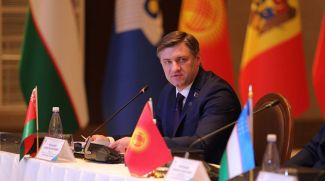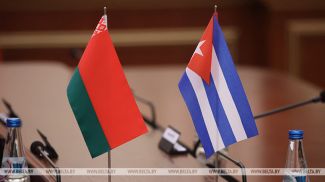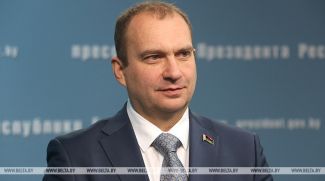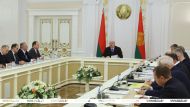MINSK, 5 February (BelTA) – Belarus calls to speed up the implementation of digital projects in the Eurasian Economic Union (EAEU), Belarusian Prime Minister Roman Golovchenko said at the Digital Almaty Forum 2021 on 5 February, BelTA has learned.
“The Eurasian Development Bank's project Traveling without COVID is the first digital project implemented in the EAEU and developed in the people's interests. At the same time, I would like to note that the other projects on the EAEU digital agenda are objectively, to put it mildly, stuck. Few tangible results, including economic ones, have been achieved over the past three years,” said Roman Golovchenko.
According to him, the implementation of the EAEU digital agenda does not lead to the development of national segments. More attention is paid to the development of centralized services, which, according to the Belarusian side, may lead to imbalance in the issues of data ownership.
“We need an initiative at our level to eliminate this situation. We need to actively set tasks, identify implementers and exercise effective control. It is important to set the right task, to develop clear rules and information architecture. It is necessary to coordinate and synchronize the pace of work in the states and at the integration level,” Roman Golovchenko believes.
He cited the EAEU integrated information system as an example. Belarus has decided to develop a national system of electronic passports of vehicles. The system will be ready within six months. At the same time, the Eurasian Economic Commission plans to prepare an integrated information system for the exchange of electronic passports between the countries not earlier than in a year and a half. “This probably may not suit us very well,” Roman Golovchenko said.
The EAEU project of digital transport corridors has been progressing slowly so far. “The decision to launch the project was made in Almaty a year ago. The year was spent to determine a list of priority services which should be developed. In our opinion, we need to move much faster,” the Belarusian head of government said.
“Belarus supports joint implementation of digital projects. At the start of the new decade, we need to accumulate existing achievements, scientific potential and ensure the transition to the new digital reality through intensive digital development of our countries. Digitalization should bring the real economy to a new level. Advanced technologies in education, healthcare and security should make part of people's lives,” Roman Golovchenko said.
Smart city can become one of the joint projects. Large cities in the EAEU have basically the same tasks in controling lighting, traffic flows, electricity, water and heat supply. All these tasks can be solved with the help of multifunctional digital platforms.
“Such projects require coordinated work. I suggest that the Eurasian Economic Commission analyze digitalization programs of the EAEU member states, identify similar projects and make proposals for their joint implementation,” said Roman Golovchenko.
In his opinion, the EAEU countries will get a “powerful synergistic effect both in terms of selecting the most effective solutions and reducing the time and cost of implementing such projects”.
Photos by Oksana Manchuk












